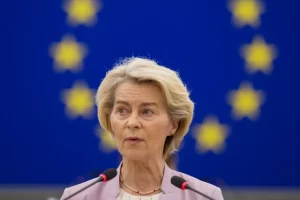British Council leads in embracing new trends in Teaching ELT

Lahore: In a ground-breaking initiative, the British Council in Pakistan on Thursday hosted an event aimed at delving into the future landscape of English Language Teaching (ELT).
The event brought together thought leaders, educators, and key stakeholders to engage in discussions that centre around the pivotal role of English as a medium of education, the imperative nature of teacher preparedness, and the development of innovative teaching strategies.
The event delved into the essence of Continuing Professional Development (CPD) for both public and private school English Language teachers.
Spotlighting the power of peer learning, it aimed at refining English language skills. Attendees including panellists from LUMS, Taleemabad, and other prestigious institutions and organisations immersed themselves in walk-in workshops designed to embrace the future of ELT. These sessions equipped educators with tools to raise climate change awareness, seamlessly integrate Artificial Intelligence (AI) and technology, and establish safer, more inclusive ELT classrooms.
James Hampson, Country Director, the British Council in Pakistan, said: “We’re investing in Pakistan’s education system so that children in public schools and students at university can achieve their ambitions. Today’s conference on the pivotal role of English will benefit learners, teachers, and policymakers deliver better outcomes, and shape a successful future.”
Talha Chishti, Head of English programmes at the British Council in Pakistan, said: “Embracing New Trends in ELT offers a platform to discuss the role of English as a medium of instruction, language transition policies, teacher training challenges, and the integration of technology, including AI, for enhanced language teaching and learning. The goal is to propose sustainable policy measures for improved learning outcomes.”
The event sparked a revolution in Pakistan’s ELT landscape, uniting stakeholders from research, academia, teachers’ development centres, and government bodies.





